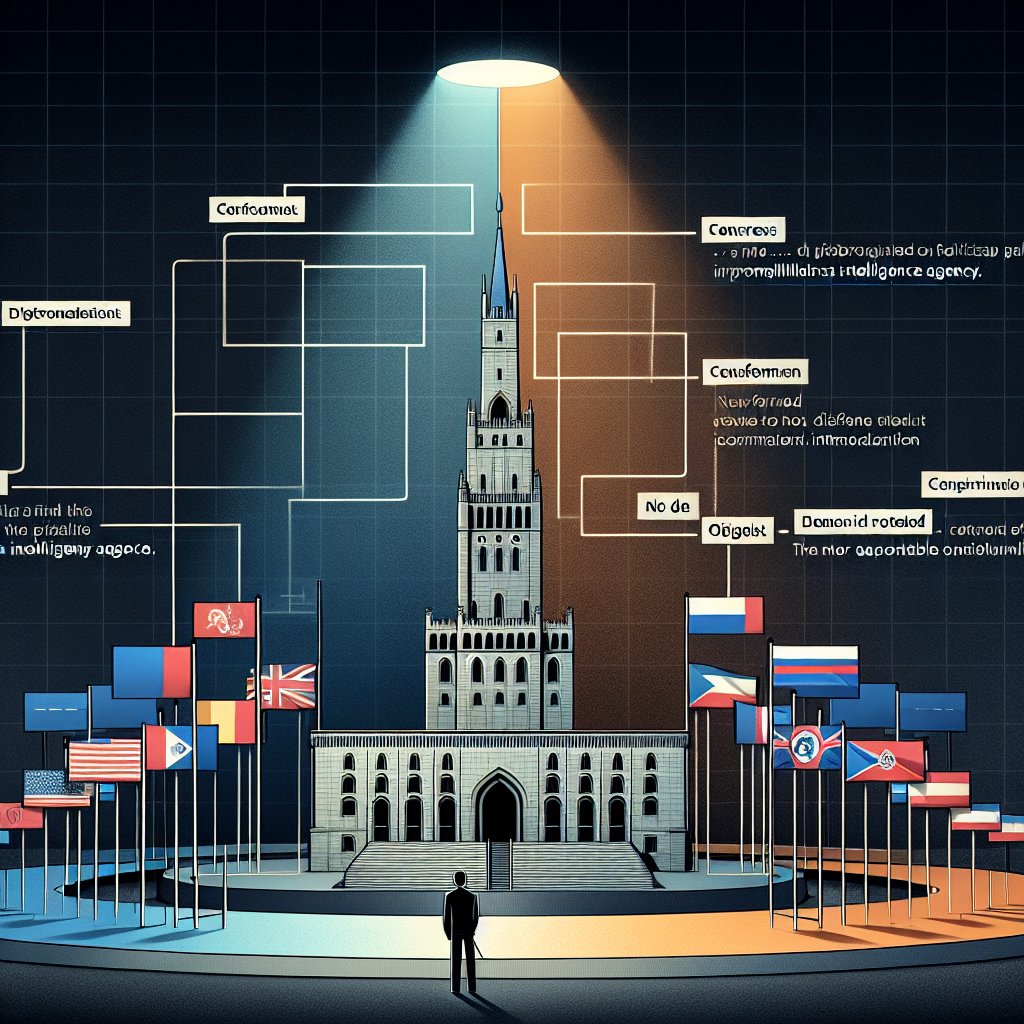Image created by AI
South Africa's National Assembly Passes Intelligence Reforms to Rectify Zuma-Era Abuses
The South African National Assembly has collectively moved a significant step towards reforming the country's intelligence framework. The recently passed General Intelligence Laws Amendment Bill heralds a pivotal update to South Africa’s intelligence agencies, particularly marked by a concerted effort to dismantle structures considered problematic since the presidency of Jacob Zuma.
The bill, which received backing from virtually all parties except one, is a legislative response to the concerns raised by the Sydney Mufamadi-led high-level review panel. The key objective is to dissolve the existing State Security Agency (SSA) and replace it with two distinct entities: the South African Intelligence Agency that will manage domestic intelligence and the South African intelligence service in charge of foreign intelligence-gathering.
An equally significant institution being restored by this bill is the South African National Academy of Intelligence (SANAI), whose mandate is the systematic training in intelligence. SANAI's re-establishment aligns with constitutional directives and seeks to reposition South Africa's intelligence operation within a lawful and regulated framework.
Furthermore, the bill prescribes new approaches for managing cybersecurity, information protection, and intelligence. It charges the minister responsible for intelligence with establishing stronger accountability and control of these services in accordance with section 209 of the constitution.
The urgency of these reforms was underscored by ANC MP Bheki Hadebe. He recounted the irregular intelligence restructuring during Zuma's administration, stressing that the bill presented a chance to confront a painful history and create a robust accountable service critical for democracy.
The high-level panel had exposed the SSA as a source of financial and political exploitation and outlined measures to prevent such abuses. Noteworthy recommendations included the separation of the SSA into domestic and foreign branches, revisions of the ministerial powers, and relocation of the National Intelligence Co-ordinating Committee to the Presidency.
Dianne Kohler Barnard of the DA lauded the bill as a necessary antidote to the "evils" of the past and a reinforcement of democratic safeguards. She emphasized the thoroughness of the legislative process and the removal of unconstitutional clauses to ensure the SSA's operations are transparent and protect the nation, not individuals.
Despite backing the bill's vision, the EFF’s Mbuyiseni Ndlozi voiced concerns about the hurried legislative process, yet commended proposed amendments such as the enhanced independence of the inspector-general for intelligence and sanctioned legal bulk interception.
Nonetheless, Ndlozi highlighted deficiencies, particularly the non-binding nature of the inspector-general's findings, suggesting further enhancements, such as making the IGI a Chapter 9 institution to strengthen oversight.
The bill's passage through parliament was not without dissent, with the ACDP being the only party that objected to the legislation.
It is evident that the General Intelligence Laws Amendment Bill represents a significant legislative overhaul aiming to remedy the ills of a previous era. Amidst broad support, it seeks to rectify deep-rooted problems within South Africa’s intelligence services and to firmly root future operations in accountability, effectiveness, and constitutional fidelity.










